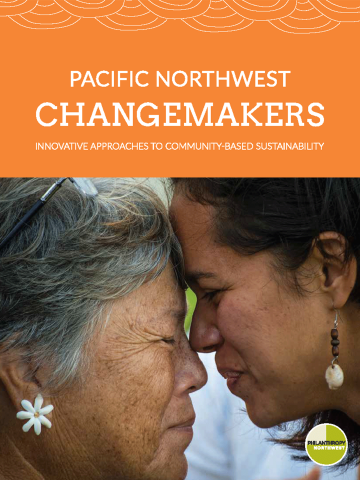On a recent trip to Anchorage, after engaging with local philanthropic leaders and learning about Alaska’s unique attributes and challenges, it dawned on me the many lessons funders in the lower 48 can glean from Alaska’s philanthropic leaders. In a geographically large state with a small population, funders wear multiple hats and coordinate easily across organizations to address formidable challenges – including homelessness, lack of affordable housing and healthcare services, access to high-quality P-16 education, workforce development and much, much more.
From this recent visit and in my role with Philanthropy Northwest over the past year, I’d like to share my observations about the unique positioning of philanthropy in Alaska.

